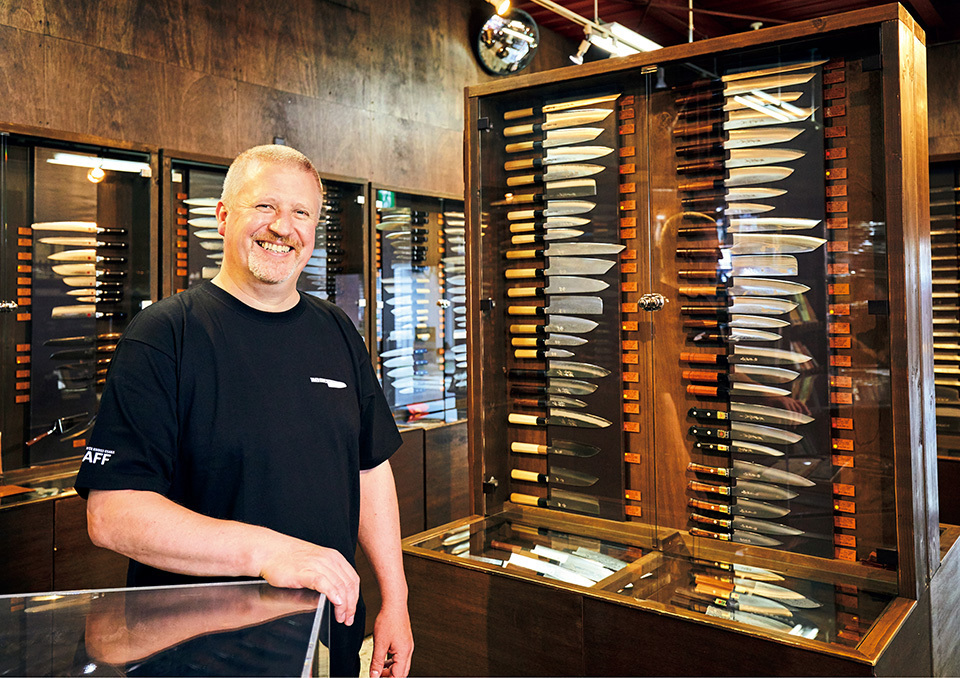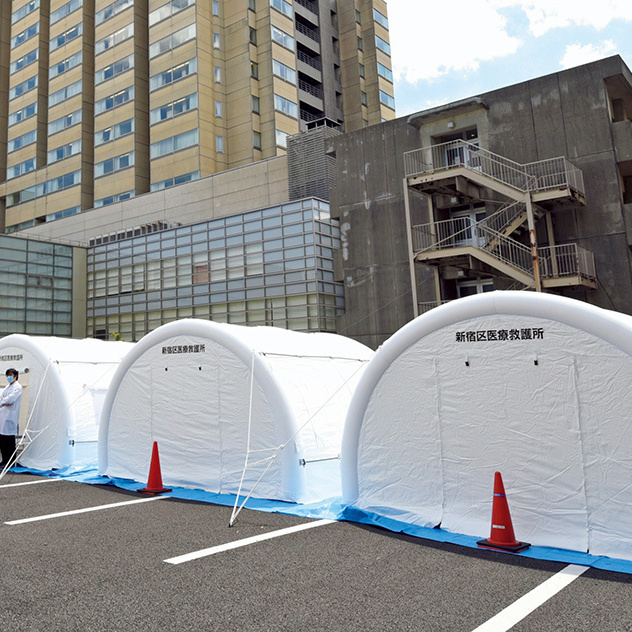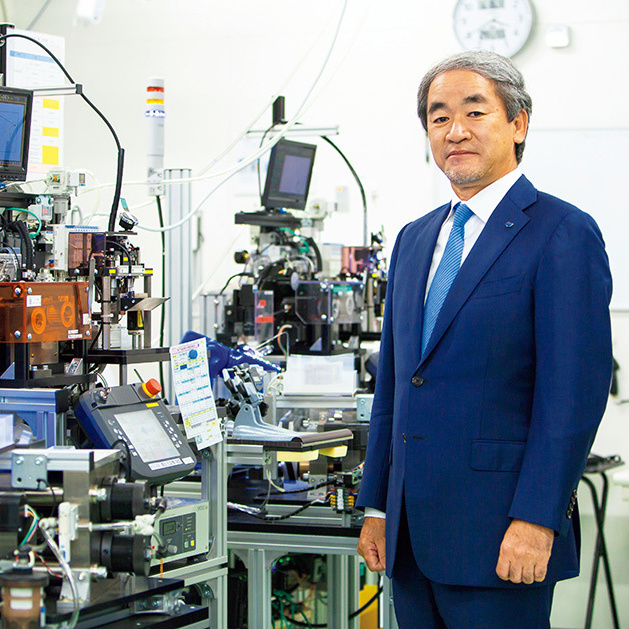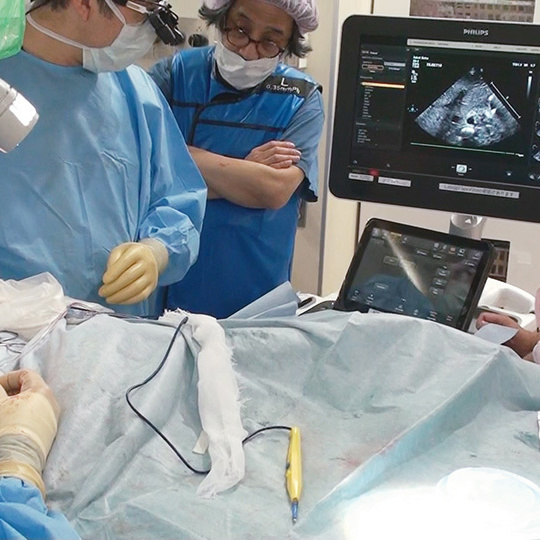Tower Knives—a specialty shop for Japanese kitchen knives in Osaka—is owned and run by the Canadian Bjorn Heiberg. Through his shop, he not only provides quality products for knife aficionados both inside and outside Japan, but also supports and fosters the craftsman culture of handmade Japanese kitchen knives.
Bjorn Heiberg, born in Canada, was raised in the wooded countryside of Denmark. Since his early childhood, he has been familiar with using pocketknives and various other tools. His interest in Japan dates back to the 1980s, when he was absorbed in watching a Japanese TV drama series, Shogun, and reading the Japanese comic, Lone Wolf and Cub. In particular, he was strongly fascinated by the Japanese swords that the major characters of the comic wielded.
In his 20s, he came to Japan on a working holiday visa, and was quickly charmed by the warmth of the Japanese people, as well as by their cuisine. His holiday turned into something more permanent when he decided to try to introduce a Swiss-made knife sharpener in Japan. On his first sales call, he visited a knife manufacturer in Sakai, an Osaka city, famous in Japan for the quality of its products handmade by traditional craftsmen. During his sales pitch, he was told, “We don’t need any knife sharpeners, but why don’t you help us export knives?” Taking that suggestion, Heiberg started a new job selling Japanese kitchen knives overseas.
High-quality Japanese kitchen knives are remarkably popular around the world. However, few retailers have been able to provide customers with in-depth knowledge about the value of the knives and the best ways to maintain them. In addition, having interacted with various craftsmen carrying on generations-old knifemaking traditions, Heiberg noticed something else. “The craftsmen in this field are passionate perfectionists about their handiwork, but the food prepared by their knives is constantly changing. So, they sometimes might need a little guidance to better understand what customers really need.” Someone thus must act as a bridge between the artisans devoted to making high-quality knives and those who actually use the knives in the kitchen. With that in mind, Heiberg left the company where he had been working for nine years, and in 2011 established Tower Knives, a showroom for Japanese-made kitchen knives at the base of Tsutenkaku Tower in Osaka.
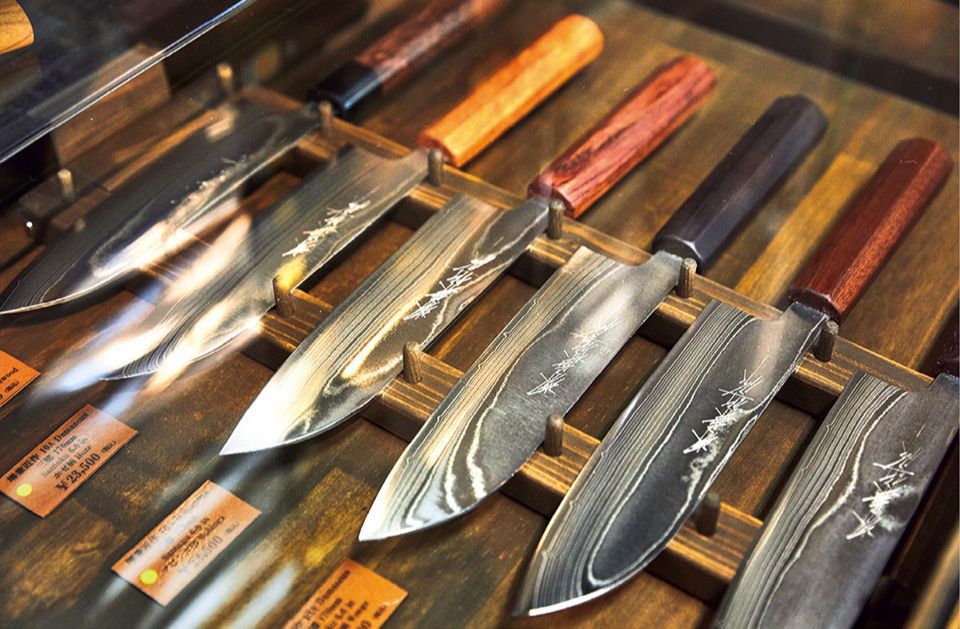
With over 500 kitchen knives on display, the shop shows the broad variety of knives produced by craftsmen throughout Japan.
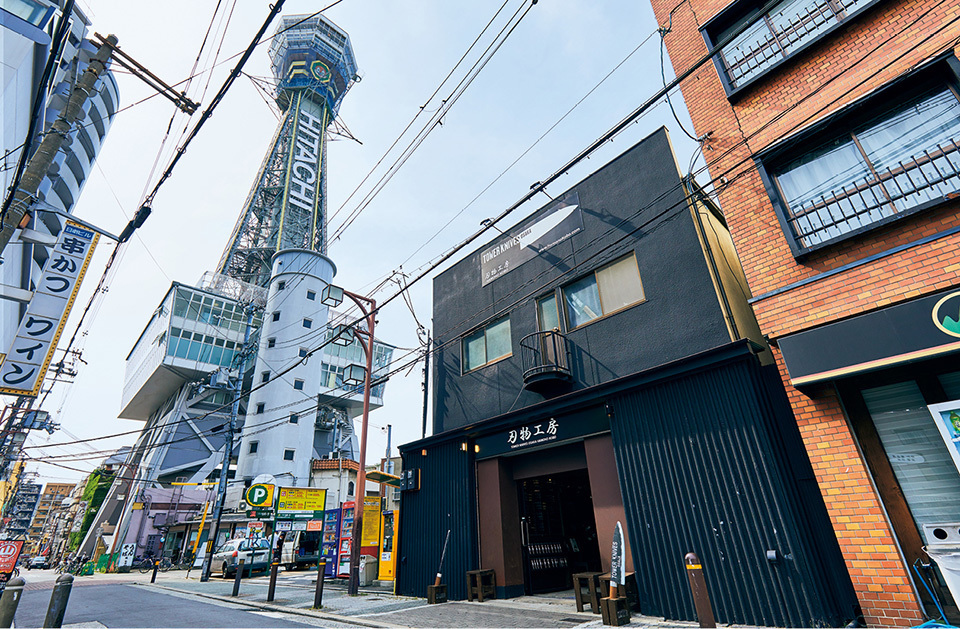
“The tower is a well-known landmark, so it’s easy for people to find my store,” explains Heiberg as the main reason for locating his store at the base of Tsutenkaku Tower in Shinsekai, dubbed “The Heart of Osaka.” Similarly, his Tokyo store, opened in 2015, is close to the Tokyo Skytree tower, the tallest structure in Japan.
The store now offers more than 500 kitchen knives carefully selected from all over Japan. Heiberg and his staff give live demonstrations of chopping vegetables to show visitors how to best use and maintain the knives. “Japan has possessed both high-quality steel and the excellent skills of craftsmen, which has enabled its history of forging the ultra-sharp blades of samurai swords. When a kitchen knife is produced to that level of perfection, it can slice a food ingredient very smoothly, resulting in a minimal loss of flavor. You can really taste the difference. With a lot of loving care, those kitchen knives become heirlooms that can be handed down for two or three generations. The more people realize that, the more willingly they will accept the cost for better quality,” explains Heiberg.
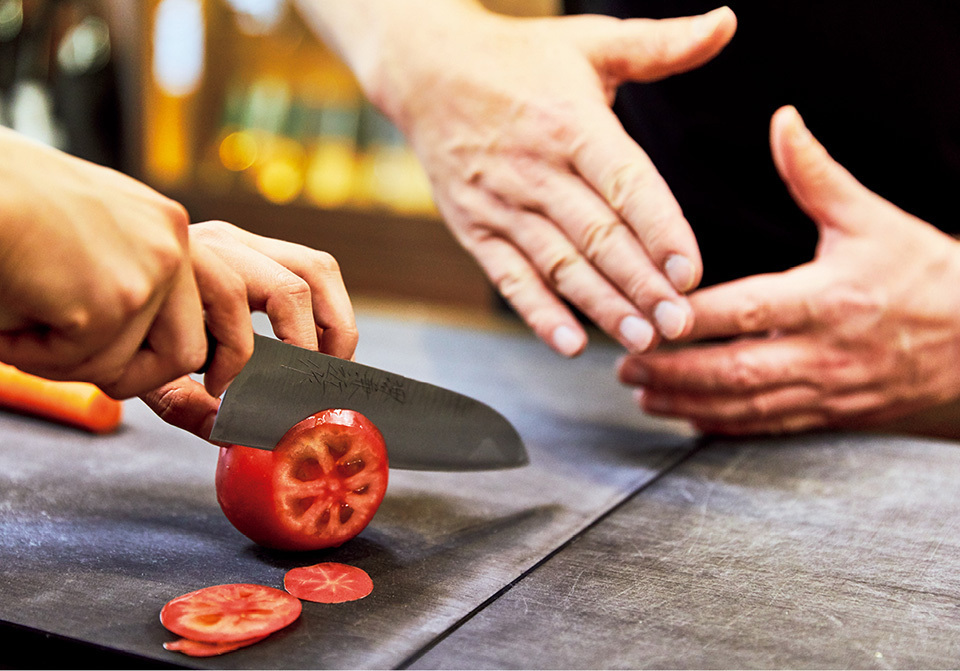
In the main shop, tomatoes and other fresh vegetables are used to show visitors how to handle sharp kitchen knives properly. Food prepared with excellent knives is said to both look and taste better.
By helping to bring awareness to Japanese kitchen knives, their proper usage, and their craftsmanship, Heiberg is also helping to preserve the traditions of the high-quality blade-making culture in Japan. It is his passion for knives that builds a bridge to the next generation of this traditional Japanese culture.
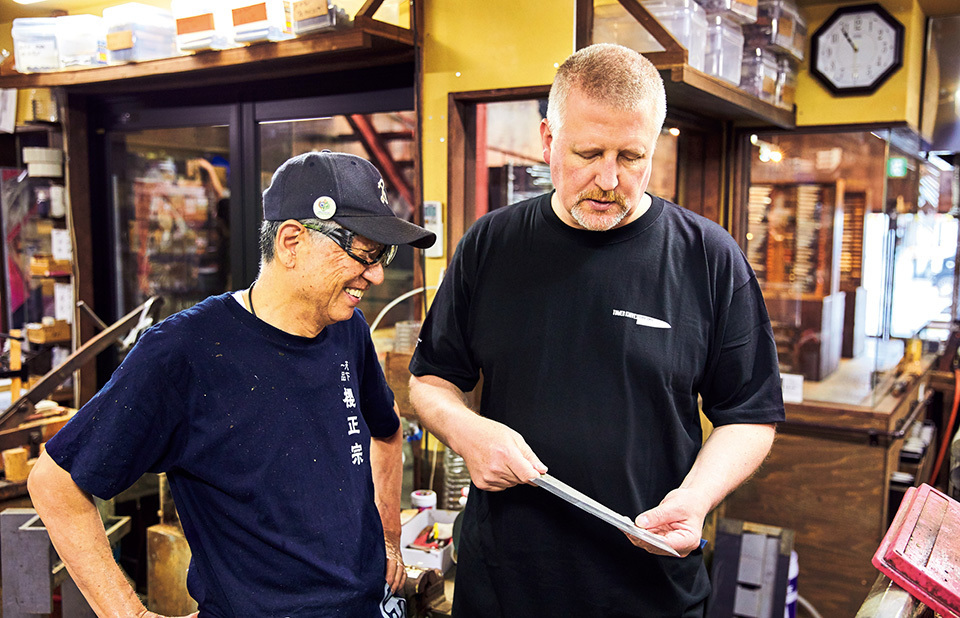
Craftsmen are periodically invited to the workshop in Heiberg’s store to demonstrate their variety of skills, including knife-sharpening. Here, FUJII Keiichi, a traditional craftsman from Sakai, is showing how knives are sharpened.
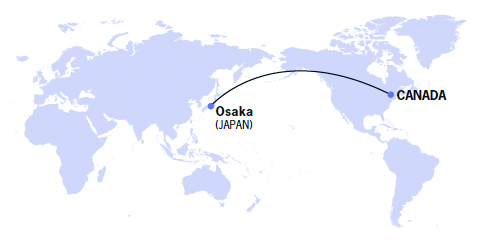
Bjorn Heiberg
Born in Canada in 1969, he was raised in Denmark. In his 20s, he came to Japan, and after working as a language teacher and company employee, he gained employment with a knifemaker in Sakai. Responsible for exporting Japanese knives overseas, he has dealt with knives from all over the country. In 2011, he opened Tower Knives in the Shinsekai area of Osaka, specializing in Japanese knives. Having opened a total of three stores in Osaka and Tokyo, he is creating Japanese knife aficionados throughout the world.

























